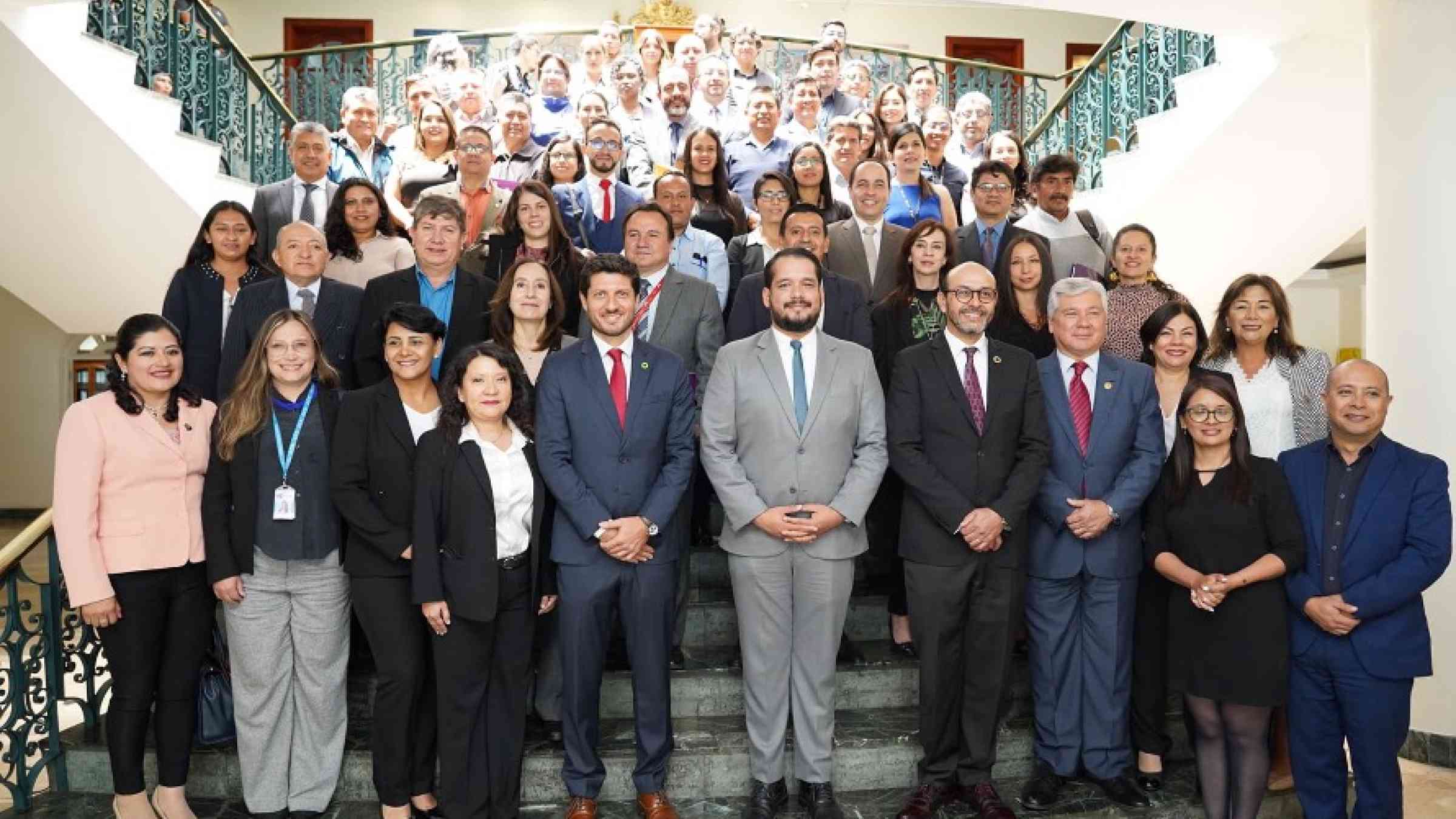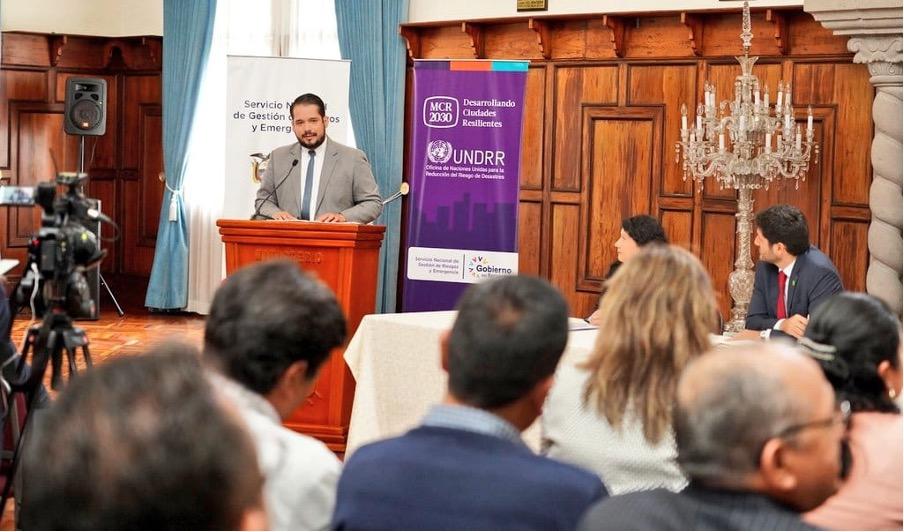MCR2030 celebrates the launch of the initiative in Ecuador together with the national government

As a way to ensure inclusive, safe, resilient, and sustainable cities, on November 11, the partnership between the Ecuadorian national government and the UNDRR Regional Office for the Americas and the Caribbean was formalized to implement the Making Cities Resilient 2030 (MCR2030) initiative in the country, under the leadership of the National Risk and Emergency Management Service (SNGRE).
As part of the event, authorities from 38 decentralized autonomous governments in Ecuador signed a letter of commitment to the initiative. Through the signing of this letter, the decentralized autonomous governments, key figures in successfully integrating disaster resilience into urban development planning processes and the day-to-day operations of cities, committed to carry out the evaluation of the Roadmap to Resilience stage of the MCR2030 initiative and to act in accordance with the actions defined for its implementation in the country.

Cristian Torres, General Director of SNGRE of Ecuador. Source: SNGRE
The launch of the initiative, which took place at the Ministry of Foreign Affairs and Human Mobility, was led by Cristian Torres, General Director of the SNGRE; Rodrigo Rosero, Undersecretary General for Risk Management; Patricia Carrillo, Undersecretary for Risk Reduction; and Virgilio Benavides, Undersecretary for Information Management and Risk Analysis. Also present on behalf of the UNDRR Regional Office for the Americas and the Caribbean were, Nahuel Arenas, Deputy Chief, and Adriana Campelo, Regional Coordinator of the MCR2030 initiative.

Nahuel Arenas, Deputy Chief of the UNDRR Regional Office for the Americas and the Caribbean. Source: SNGRE
MCR2030 drives local resilience through advocacy, knowledge and experience sharing, and city-to-city learning networks to achieve the goals set out in the 2030 agenda. Through this initiative, local governments have the opportunity to exchange knowledge and experiences, strengthen their technical capacities and learn how to better manage their resources in order to accelerate the adoption and implementation of resilience strategies, as well as achieve stronger and more integrated institutions.
In Ecuador, the initiative seeks to support local governments in planning and implementing actions to reduce disaster risk and promote resilience. In this first stage, 40 decentralized autonomous governments, selected by the SNGRE for their characteristics of exposure and vulnerability to risk, will participate as pilots to implement resilience projects aligned with the recent publication by the SNGRE of the "Guidelines for the Governance of Disaster Risk Management in Municipal and Metropolitan Decentralized Autonomous Governments". At the close of the event, 17 decentralized autonomous governments were already registered, including cities such as Quito and Portoviejo.
You can find the video of the event here (Spanish only):

